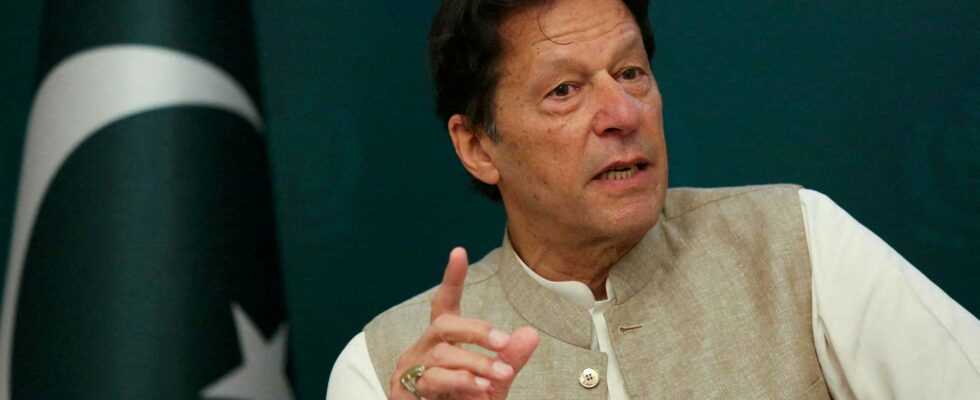The Pakistani Supreme Court has overturned the dissolution of the National Assembly, weakening Prime Minister Imran Khan.
Pakistani Prime Minister Imran Khan appears closer than ever to exit after the Supreme Court on Thursday overturned the dissolution of the National Assembly and ordered a no-confidence motion against him to be put to a vote.
The surprise move is a huge blow for the former cricket star, who was elected in 2018. His last-minute ploy to avoid being overthrown by the opposition ultimately didn’t work.
The five judges of the Supreme Court sitting for the occasion unanimously considered that the refusal of the vice-president of the National Assembly, a faithful of Mr. Khan, to submit this motion of censure to a vote on Sunday was “contrary to the Constitution and without legal effect”.
The country’s highest court ruled that the dissolution of the National Assembly obtained in the wake of Mr. Khan, which automatically led to the convening of early legislative elections within 90 days, was also illegal.
“The National Assembly continues to remain in session,” ruled the court, which ordered it to meet again on Saturday to put the motion to a vote.
The judgment was greeted with effervescence in Islamabad by opposition supporters, who filled the streets in cars, to the sound of car horns. A strong police presence could also be observed in the capital.
“This decision has saved Pakistan and its Constitution”, reacted the leader of the opposition in the Assembly, Shehbaz Sharif, leader of the Muslim League of Pakistan (PML-N) and tipped to become Prime Minister if the motion of censorship is approved.
“Democracy is the best revenge,” also savored Bilawal Zardari Bhutto, the son of assassinated former Prime Minister Benazir Bhutto and leader of the Pakistan People’s Party (PPP), an ally of the PML-N.
“Foreign interference”
Imran Khan, 69, whose opposition has constantly denounced the mismanagement of the economy and blunders in foreign policy, now seems to have no chance of surviving the motion of censure.
The opposition announced last week that it had won enough votes to make it lose its parliamentary majority.
According to the latest figures communicated to the Supreme Court, she now has 177 votes. It takes 172 to get a majority. This is without counting dissidents from Pakistan Tehreek-e-Insaf (PTI, Pakistan Movement for Justice), the Prime Minister’s party, who would also be ready to vote with her.
The vice-president of the Assembly had refused to pass the motion of censure, arguing that it was unconstitutional because it resulted from “foreign interference”.
Imran Khan had several times in recent days accused the United States of interfering in Pakistani internal affairs with the complicity of the opposition, whose treachery he denounced.
He blamed Washington, who denied any involvement, for wanting to get him out, because of his refusal to align himself with American positions on Russia and China.
The head of government then obtained Sunday from the President of the Republic, Arif Alvi, another of his allies, the dissolution of the Assembly.
Inflation, Rupee Depreciation, Deepening Debt
Imran Khan was elected in 2018 by taking advantage of voter fatigue with the PPP and the PML-N, two parties organized around large family dynasties that have dominated national politics for decades, but have become the symbol of elite corruption.
But the social reforms undertaken by Mr. Khan and his popularity with Pakistanis for having led the country to its only victory in the Cricket World Cup in 1992, were not enough in the face of the deterioration of the economic situation.
Inflation (10% in 2021), the sharp depreciation of the rupee (minus 18% since July) and the widening of the debt have made its position vulnerable.
Pakistan, a nuclear-armed Islamic republic of 220 million, which celebrates its 75th anniversary this year, is used to political crises.
No prime minister has ever completed his term in this country since its independence in 1947. The army, key to political power, which was accused of supporting Mr Khan in 2018, has not taken a public position. the last days.
The country has seen four successful military putsches and at least as many coup attempts, and has spent more than three decades under military rule.
